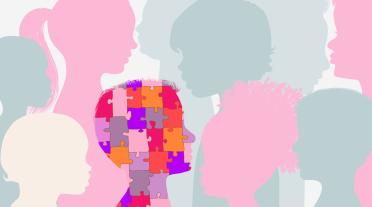What is Neurodiversity?
Neurodiversity is the concept that people's brains are different and that these differences are normal. Individuals with conditions that fall under this umbrella term (such as Autism, Asperger's and ADHD) are not ‘abnormal,’ but simply think and process information in different ways; often these individuals are misunderstood.
According to Send It To Alex (SITA), Only 21% of autistic people are employed and 77% of unemployed autistic people want to work. On top of this, around 50% of employers would feel uncomfortable employing a neurodivergent individual. These facts and figures are astonishing and show that businesses still have a long way to go in their efforts to be socially responsible and all-inclusive. Encouraging diversity in the workplace means more people who were once squared off from society, feel integrated into it and are given the opportunity to learn new skills and progress in a career.
In recent years, more and more employers are seeing the benefit of welcoming a range of diverse thinking in order to strengthen their workforce and experiencing the advantages of having neurodivergent team members on board. Often such individuals provide new perspectives, enabling businesses to grow and innovate by solving problems and developing solutions in ways that are considered ‘outside the box.’ By embracing neurodivergent individuals as part of valuable members of your team you're accessing a whole new pool of talent; do not underestimate the importance of this.
This inclusivity and embracing of differences should be encouraged and employers should work to dismantle the stigma surrounding neurodivergent individuals so that they feel valued, supported and listened to. The more we can work to break down these barriers facing neurodivergence, the more we can work to be a stronger, more well-rounded and progressive society.

What can you do as an employer?
Whether or not they disclose it, it isn’t uncommon for there to be at least a few neurodivergent employees within your organisation. It is crucial that you make sure all employees feel comfortable and able to be open about such information in order to accommodate and best support their needs. If you know that you have any neurodivergent individuals within your team, or suspect you might have, there are many ways you as an employer and team member can support the individual.
Great Place to Work outlines 7 simple ways in which businesses can build a more diverse pool of employees:.
- Be patient and considerate; building the right workforce is equally as important as building one that is neurodiverse. Bear in mind it takes time to get to know individuals and how they work and carry themselves. Some individuals might be more outspoken, or introvert, and it is worth taking the time to show compassion whilst you learn each individuals differences.
- Adjust and accommodate the needs of neurodiverse employees. This could range from their working environment to their equipment. People work best in different ways and it is important to understand this. This might mean quiet spaces, noise-cancelling headphones or extra training time. Consider the hiring and interviewing process, how can you adjust this so that it not only appeals to a wider range of people, but also allows those who present in different styles the same opportunity to shine.
- Lay down the law - make equality and fairness part of your core principles & non negotiable. Educate your staff via training sessions, and speak out in your industry about the importance of neurodiversity and the benefits to encourage others to follow similar practices.

How does Versantus create an inclusive environment?
Part of being certified a Great Place to Work means we want to encourage diversity within our team, believing that not only does this generate more diverse and innovative ways of thinking, but it also encourages those who may not have been previously given the opportunity, or had the confidence, to use their mind and develop skills. We welcome those with eccentric personalities and work to accommodate individuals both during the interview process and, if they are successful, during their employment, in order to access their unique ways of problem solving and potential to achieve great things. We have found that some of the more socially eccentric team members have gone on to produce work beyond the quality and creativity of was initially expected.
We have a zero-tolerance policy on discrimination in the workplace. All of our staff are made aware of this from day one and ensure it is re-enforced and implemented at all times. We also frequently hold 'Lunch and Learns' which give all of our employees the opportunity to present on a topic that is important/of interest to them ensuring all have a voice, are being listened to and feel valued. We provide employees with the appropriate resources, space and any further adjustments they need in able to carry out work in the most beneficial way for them. One of our most recent employees who has autism has expressed how they have never felt so “welcomed, accepted and encouraged to reach their full potential than at Versantus” and unlike in previous employment settings feels like they are “part of the furniture after just a short time as a member of the Versantus community.” We aren’t perfect, we still have work to do in order to be more socially responsible and inclusive, but recognising and admitting our downfalls is the first step to making change, and change we will make!

Building a dynamic workforce has never been as important as it is right now with the advancement in technologies like artificial intelligence and robotics, as often it is these people who possess the skills to understand such systems. Neurodiversity is an often underestimated and a misunderstood topic, and employers have a great opportunity to change this by encouraging and supporting it in the workplace. This will provide not only great benefits to employers and their business, but also allow neurodivergent individuals the same opportunities in life as those who are neurotypical.
If you want to read more about how you can increase diversity within your workforce, then we strongly advise you to look at Great Place to Work and take their employee surveys in order to gather qualitative and quantitative data regarding employee experience.

